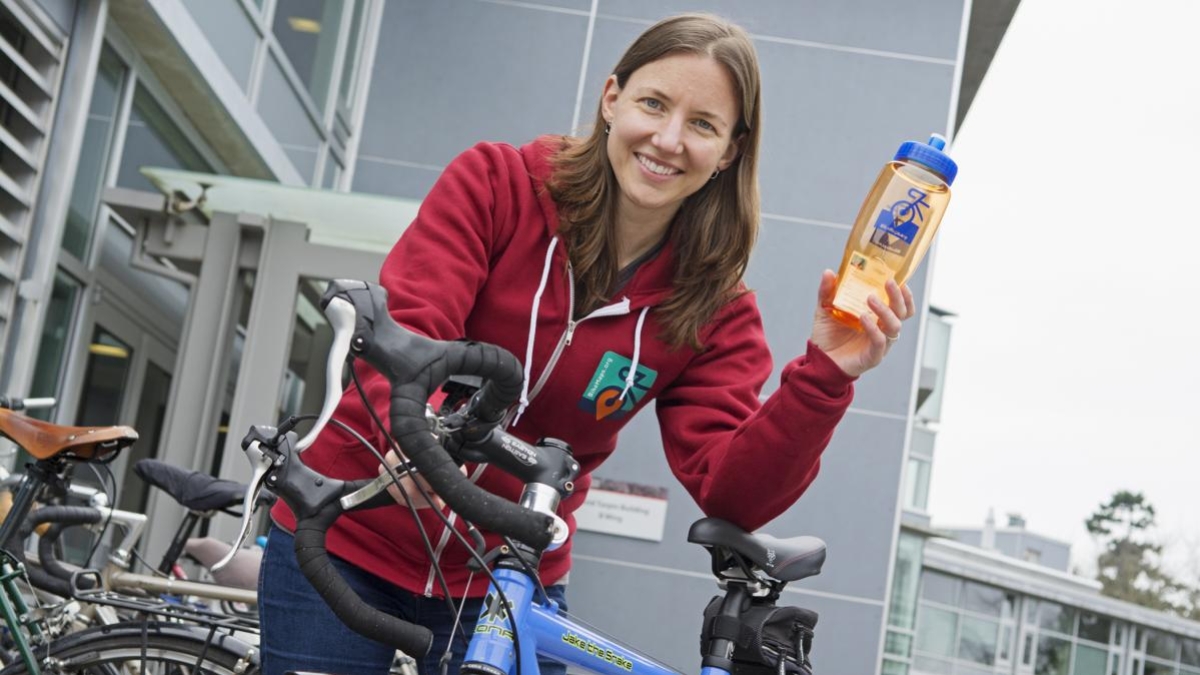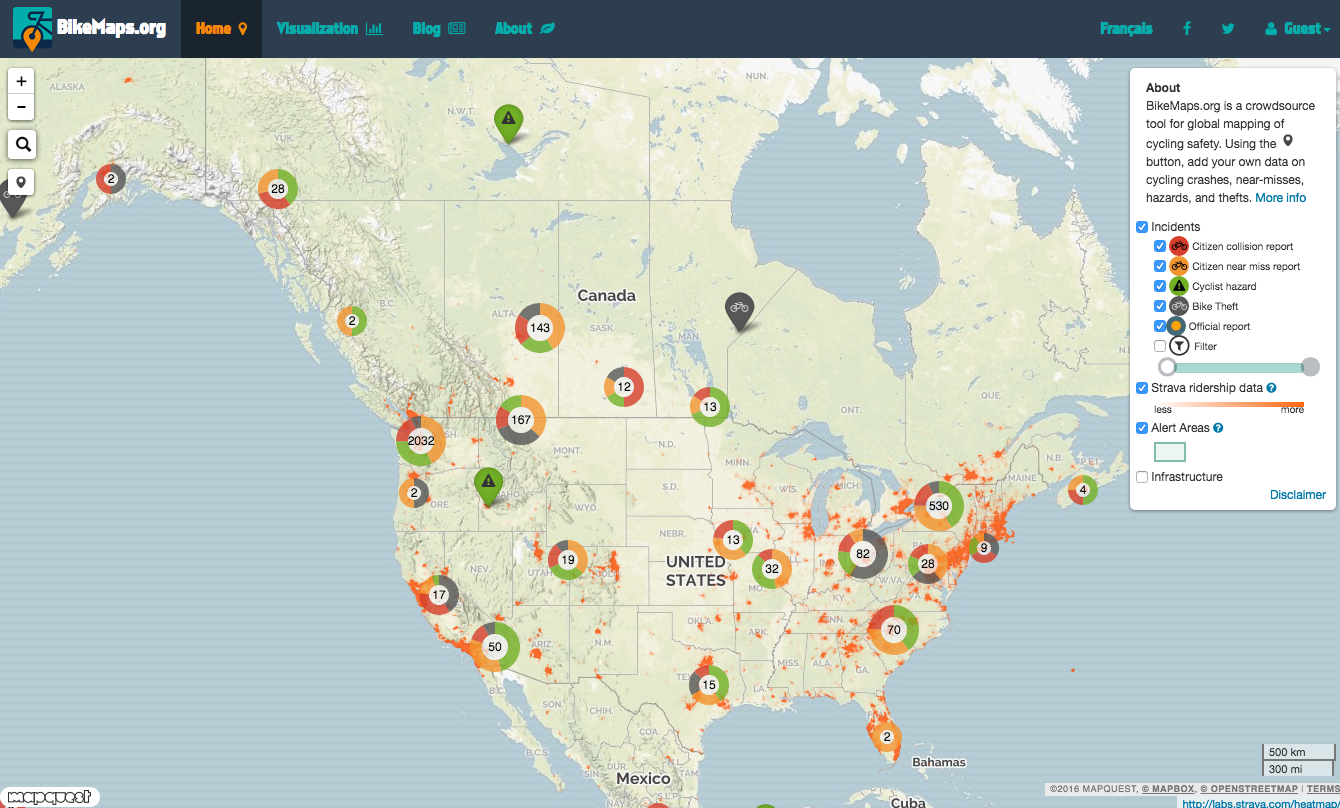For Trisalyn Nelson, inspiration hit when the oncoming car almost did.
One day in 2014, Nelson was cycling on her way back from work at the Spatial Pattern Analysis and Research Lab she founded at Canada’s University of Victoria. As she was coming around a blind corner, a car passed by too close for comfort. By the time she arrived back at the lab the next day, an innovative new idea was in the making.
“I was mad … I said, ‘That’s it … our lab is going to work on a project, and we’re going to call it Flip the Bird and it’s going to be a place where people can rant about things that happen to them on their bike,’” said Nelson, now the director of Arizona State University’s School of Geographical Sciences and Urban Planning.
“But then I started looking around and I realized, ‘Wait, this isn’t just a place for ranting, because nobody has good data on this. So why don’t we do it properly and we will help be part of the solution.’”
That’s how BikeMaps.org was born.
Aside from being a case study on how to effectively channel frustration, the website and app aim to make cycling safer for bike enthusiasts worldwide. Cyclists can use BikeMaps to report hazards, collisions, near misses and thefts to the rest of the cycling community.
Cyclists can use BikeMaps to report hazards, collisions, near misses and thefts to the rest of the cycling community.
During the week of Oct. 24, the School of Geographical Sciences and Urban Planning, ASU Fitness and Wellness, University Sustainability Practices and the Coalition of Arizona Bicyclists will collaborate to help distribute 1,000 water bottles imprinted with the BikeMaps logo to ASU and Tempe cyclists. The bottles will be delivered to bike racks and bike cages in the area.
Called “Bike Blitz,” the distribution occurs in conjunction with ASU’s Bike Month this October, and the bottles will contain a message encouraging recipients to take part in the BikeMaps citizen science effort.
Nelson hopes to use the data gathered from the “Bike Blitz” to help cyclists and the city of Tempe make better-informed decisions about bicycle safety practices.
“A lot of cities are focused right now on getting more people on bikes because [of] its good public health benefits, good environmental benefits, [and] you can save a lot of money if you ride your bike,” Nelson said. “But the number one barrier for more people riding is that people don’t feel safe. So the more we can make it a safe activity, the more we will make it an accessible activity.”
In addition to the Bike Blitz, the BikeMaps team will be handing out bottles at the Food Truck Thursday event Oct. 27 at the College Avenue Commons in Tempe.
More Environment and sustainability

'Earth Day Amplified' promotes power of collective action
Everybody loves the concept of sustainability. They want to do their part, and the chance to say they’ve contributed to the well-being our of planet.But what does that actually mean?Arizona State…

Rethinking Water West conference explores sustainable solutions
How do you secure a future with clean, affordable water for fast-growing populations in places that are contending with unending drought, rising heat and a lot of outdated water supply infrastructure…
Meet the young students who designed an ocean-cleaning robot
A classroom in the middle of the Sonoran Desert might be the last place you’d expect to find ocean research — but that’s exactly what’s happening at Harvest Preparatory Academy in Yuma, Arizona.…



